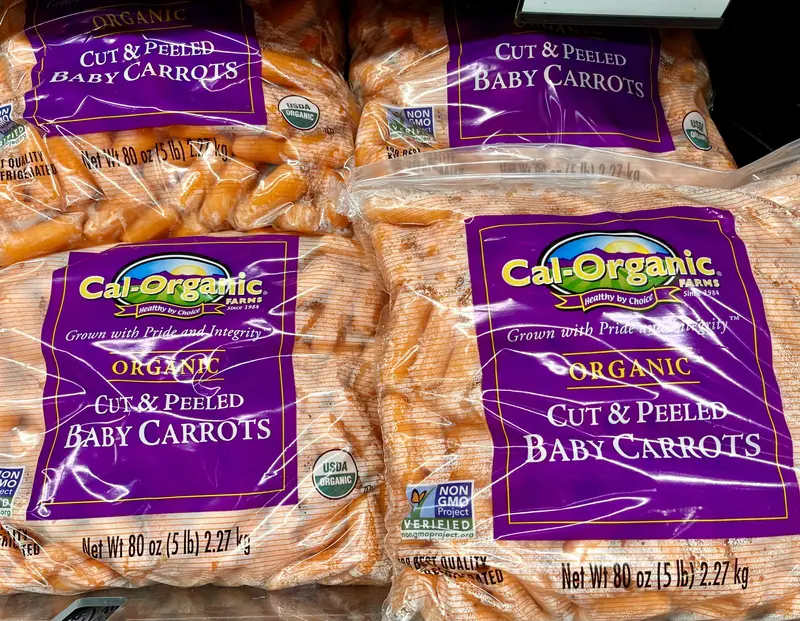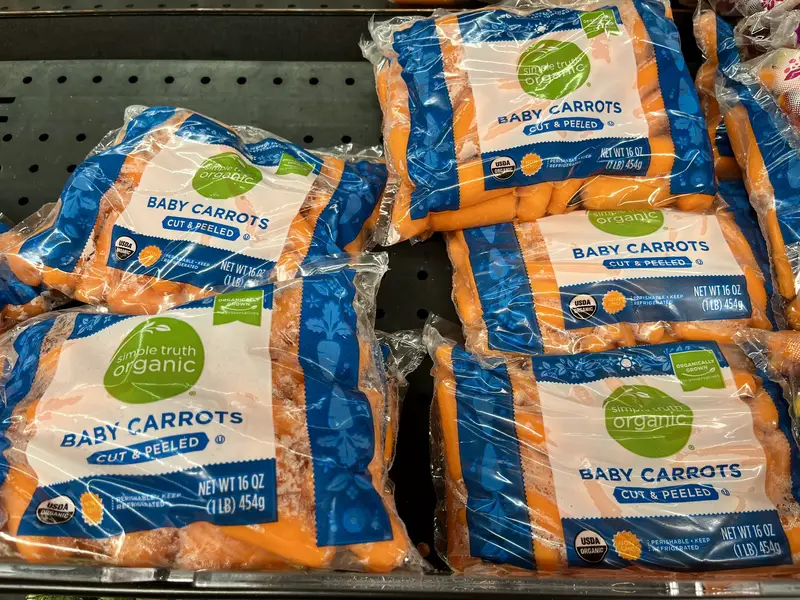A significant recall of organic carrots has swept across the nation, prompting immediate action from major retailers and distributors. Grimmway Farms initiated a voluntary recall, affecting multiple brands of organic whole and baby carrots due to potential E. coli O121:H19 contamination. The situation has escalated rapidly, with 39 reported illnesses spanning 18 states, resulting in 15 hospitalizations and, tragically, one death.
Brands and products impacted by the recall

The recall encompasses an extensive list of popular brands found in major supermarkets across the country. Affected brands include 365, Bunny Luv, Cal-Organic, Trader Joe’s, Good & Gather, GreenWise, and Wholesome Pantry, among others. For organic whole carrots, the recall applies to products available for purchase between August 14 and October 23, 2024.
Baby carrots haven’t escaped the contamination concern either. Products with best-if-used-by dates ranging from September 11 to November 12, 2024, are included in this recall. The scope has expanded beyond direct consumer products, affecting companies that use these carrots in their preparations, such as 4Earth Farms, Fabalish Inc., and Whole Foods Market.
What consumers need to know right now

If you’ve purchased organic carrots recently, there’s no need to panic, but immediate action is recommended. Current store shelves are likely safe, as the contaminated products have been removed. However, the real concern lies in home storage – check your refrigerator and freezer for any recalled products immediately.
What might surprise many is that washing produce isn’t effective against E. coli contamination. While heating to 160 degrees Fahrenheit kills the bacteria, these carrots are typically consumed raw. The safest approach is to dispose of any recalled products, regardless of their current condition.
Understanding the spread and impact

The outbreak investigation reveals a concerning pattern – 96% of interviewed patients reported consuming carrots in the week before falling ill. Industry experts suggest the true scope might be broader than reported numbers indicate, as many cases go unreported due to mild symptoms or lack of testing.
Grimmway Farms has responded proactively, initiating a comprehensive review of their growing, harvest, and processing practices. Meanwhile, the FDA continues working with the company to determine the contamination source and whether additional products might be affected.
The incident raises important questions about the complexity of modern food supply chains. A single contamination point can affect multiple brands and products across various retailers. In a hypothetical scenario, if just one processing facility experiences an E. coli contamination, it could potentially impact millions of pounds of produce distributed nationwide.
For retailers and food service providers, the message is clear – remove all recalled products immediately and thoroughly sanitize any surfaces that may have contacted these items. The investigation remains active, with federal and state agencies collaborating to prevent further spread and identify additional cases. As this situation continues to evolve, staying informed through official channels becomes increasingly important for both consumers and industry professionals.

